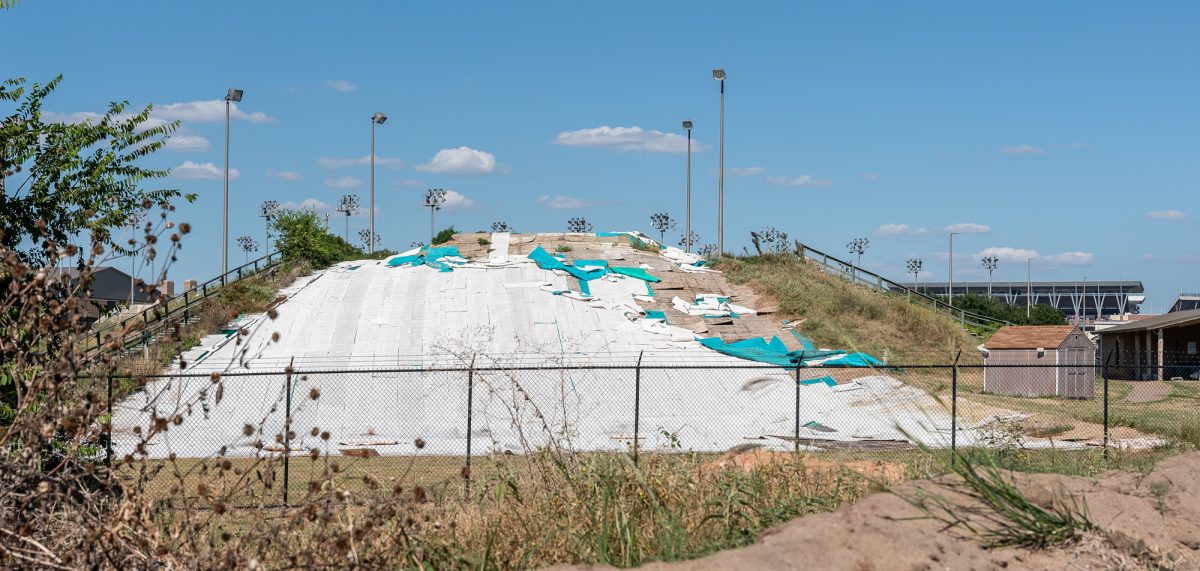Preventing fentanyl deaths
Fentanyl overdoses have left a deadly mark on young adults across Texas.
Of the unintentional fentanyl-related deaths from 2018 to August 2022, 2,874 involved individuals aged 18 to 44, according to the Texas Department of State Health Services. Seven Aggies were asked about their awareness of fentanyl and where to look on campus for education and resources.
In an attempt to reduce the number of fatalities, Texas passed a law in September 2023 allowing prosecutors to charge someone with first-degree murder for intentionally providing a fatal dose of fentanyl. If convicted, sentences range from five years to life in prison. Prosecutors in Harris and Montgomery Counties who have murder trials in progress under the new law noted it is too early to tell if the law is reducing the number of fentanyl-related deaths, according to a Sept. 4 article in the Houston Chronicle.
One student said he was aware that fentanyl is commonly used as a pain-relieving drug in the medical field but that it is often misused and can be deadly when consumed outside of the hospital or not prescribed by a doctor.
Ocean engineering sophomore Noah Amos said he doesn’t know where to find education and awareness resources on campus about how the drug can be fatal.
“I don’t think there are enough campus resources if I haven’t heard about them,” Amos said.
This issue has gained more attention after news outlets published stories on Texas teens and young adults dying from fentanyl-related overdoses after thinking they were taking the attention deficit hyperactivity disorder drug Adderall, according to a March 2023 article in The Texas Tribune.
Another student noted she had gotten most of her knowledge of fentanyl in high school. Business administration freshman Sydney Mulhare said it takes work to find campus resources that have information about the drug.
“I think there are enough resources if you look into it,” Mulhare said.
General engineering freshman Poojita Balusu said she hasn’t heard much about fentanyl on campus but believes awareness efforts should be expanded. Balusu added she believes the law is reasonable if a drug sale results in a fatality.
“I know in high school they used to do more, and I think they should do more around college campuses and more buildings,” Balusu said. “I think there are some residential [trainings] on campus, but I feel like classes should include more education.”
The topic of fentanyl overdoses isn’t widely discussed on campus, dance science senior Karli Mason said. Combining legal action with educational and health services would be the most effective approach to addressing fentanyl overdoses and unintentional deaths, Mason said.
“I’ve heard about this before — on social media and things like that — but definitely not in College Station or on campus,” Mason said. “I haven’t really heard of anything like that, but I definitely agree with the law about being held accountable.”
The news is the only source that has brought awareness to fentanyl, general engineering freshman Henry Pitman said.
“I think that they might have touched on it at my new student conference, but other than that, I haven’t really heard anything about it on campus,” Pitman said.
Industrial distribution junior Thomas Lee said there is rarely talk about the topic of fentanyl on campus or through campus resources, but awareness is important. There should be more education about the drug, Lee said.
“If you educate people like dealers on the drug awareness, then there is a chance that they won’t do it again,” Lee said.
The Opioid Task Force is one campus program that helps students with drug abuse and rehabilitation.
The task force conducts research and education on opioids and how to identify an overdose, according to health.tamu.edu. The website also states that its vision is to improve the health and lifestyle of Texans by decreasing burdens caused by the opioid overdose epidemic through collaboration with dentistry, medicine, nursing, pharmacy and public health.
Assessments for alcohol and other drug use are available as part of campus health services, according to University Health Services. The 45-minute counseling session includes a clinical interview to gather information about the student’s past alcohol and/or drug use as well as to identify any life factors that may be contributing to substance use.
The Aggie Recovery Community offers support to Aggies who are seeking or are in recovery from substance use disorder, according to the website. While it is not a mental health treatment program, the group serves as a substance-free community and a resource for students who want assistance while in the recovery process.

















